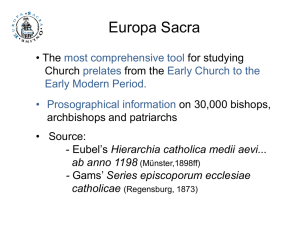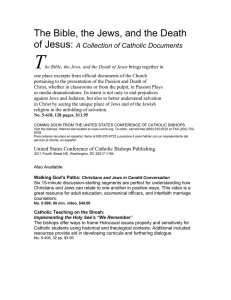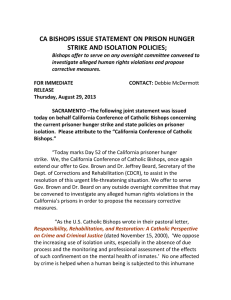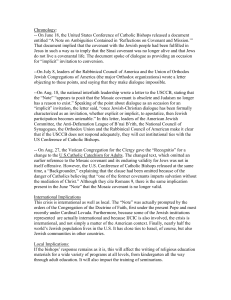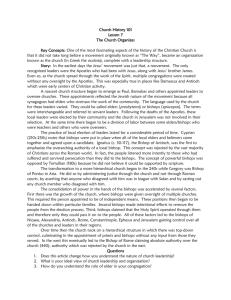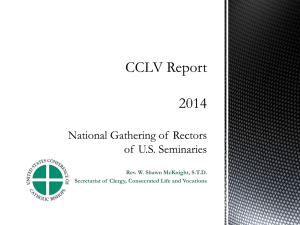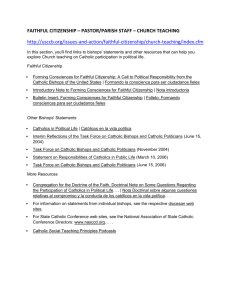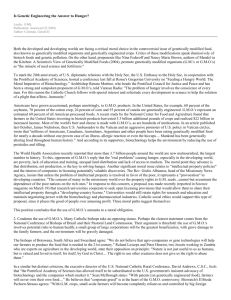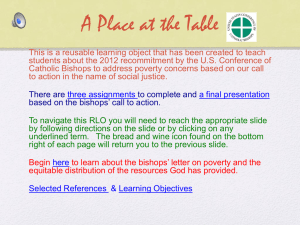Take ACTION!
advertisement
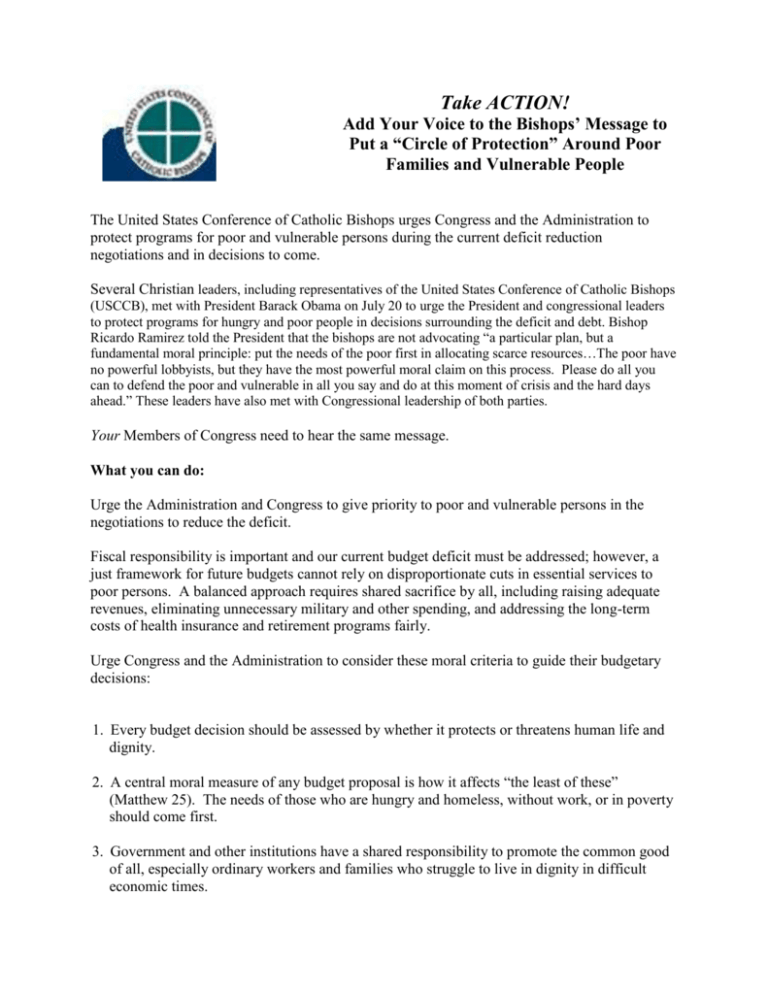
Take ACTION! Add Your Voice to the Bishops’ Message to Put a “Circle of Protection” Around Poor Families and Vulnerable People The United States Conference of Catholic Bishops urges Congress and the Administration to protect programs for poor and vulnerable persons during the current deficit reduction negotiations and in decisions to come. Several Christian leaders, including representatives of the United States Conference of Catholic Bishops (USCCB), met with President Barack Obama on July 20 to urge the President and congressional leaders to protect programs for hungry and poor people in decisions surrounding the deficit and debt. Bishop Ricardo Ramirez told the President that the bishops are not advocating “a particular plan, but a fundamental moral principle: put the needs of the poor first in allocating scarce resources…The poor have no powerful lobbyists, but they have the most powerful moral claim on this process. Please do all you can to defend the poor and vulnerable in all you say and do at this moment of crisis and the hard days ahead.” These leaders have also met with Congressional leadership of both parties. Your Members of Congress need to hear the same message. What you can do: Urge the Administration and Congress to give priority to poor and vulnerable persons in the negotiations to reduce the deficit. Fiscal responsibility is important and our current budget deficit must be addressed; however, a just framework for future budgets cannot rely on disproportionate cuts in essential services to poor persons. A balanced approach requires shared sacrifice by all, including raising adequate revenues, eliminating unnecessary military and other spending, and addressing the long-term costs of health insurance and retirement programs fairly. Urge Congress and the Administration to consider these moral criteria to guide their budgetary decisions: 1. Every budget decision should be assessed by whether it protects or threatens human life and dignity. 2. A central moral measure of any budget proposal is how it affects “the least of these” (Matthew 25). The needs of those who are hungry and homeless, without work, or in poverty should come first. 3. Government and other institutions have a shared responsibility to promote the common good of all, especially ordinary workers and families who struggle to live in dignity in difficult economic times. Take Action Now! To locate your Representative or Senators, visit www.house.gov or www.senate.gov, or call 1-202-224-3121 to be connected to the Capitol Switchboard. Call 1-888-245-0215 to be connected to the White House comment line. Background: Poverty-focused international assistance provides agricultural assistance to subsistence farmers, medicines for people living with HIV/AIDS, vaccines for preventable diseases, assistance to orphans, food for starving people, relief for people devastated by natural disasters, peacekeepers to protect innocent civilians, support for refugees fleeing for their lives, and other essential services. The enacted FY 2011 Foreign Affairs budget cut these life-saving programs by an average of just over 8% from FY 2010; further cuts would be disproportionate and lifethreatening to the most vulnerable people in the poorest places on earth. Domestic anti-poverty programs not only help poor families meet their basic needs, but also prevent families from falling into poverty. For example, the most recent data demonstrate that the families of over three million children in the United States were not living in poverty, because they received the Earned Income Tax Credit. The Government Accountability Office (GAO) report on SNAP (formerly known as food stamps) shows this to be one of the best run and most efficient federal programs. It is a counter-cyclical program, so use has risen but will come down as the economy recovers. Benefits go directly to families who use them in the local community and local grocery stores. Food Stamp redemption in military commissaries increased 38% in 2010. Circle of Protection (Includes the statement of principles and a list of programs) Bishops’ Letter to House on FY 2012 Budget Resolution Bishops’ Letter to Senate on FY 2012 Budget Resolution USCCB News Release on Meeting with President Obama Catholic News Service article on Meeting with President Obama Go to http://capwiz.com/catholicbishops/home to check out the full alert. If you are on Facebook, join the USCCB page at www.facebook.com/usccb and click on “Take Action” on the left side of the page to learn more.

